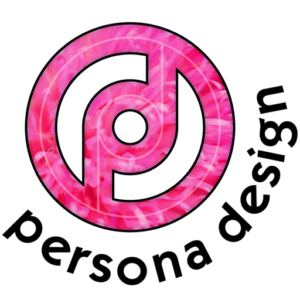Armed and Dangerous: How Misuse of Social Media Can Damage Your Brand
Digital disruption seems to be taking over businesses across Ireland and worldwide. Companies are jumping on the social media bandwagon in their thousands with little apparent thought for brand strategy or brand management. And why is this? The answer for most, it seems, does not extend far beyond ‘because other businesses are online and so are our customers’. Here in lies the problem.
The decision as to whether online marketing or social media is right for your business is a strategic one, if it ties into the marketing and ultimate business strategy of your company. However, this appears to be something evading many companies who are setting up social media profiles for their brands/businesses with little regard as to what role they are deemed to play, how these profiles will help drive the profitability of the business and how congruent their activity is with their brand.
When employed correctly social media can be an extremely powerful marketing tool for your business. It can be an effective method of building strong customer relationships, adding brand value, reinforcing strong brand imagery, gathering valuable customer feedback and, particularly for small and medium companies, it can provide great exposure for your company that may be prohibitively expensive using more traditional marketing tools.
In the wrong hands, social media can be hugely detrimental to your brand image, company reputation and even cause you to loose revenue for your business.
In January of this year McDonalds attempted to create a social media campaign on Twitter which aimed to have the public spread their positive stories about the McDonalds brand using the hashtag #McDStories. In their naivety, McDonalds did not take into account that on social networks the company cannot control the brand message spread by the public.

What was intended as campaign to develop positive connotations about the McDonalds brand was quickly hi-jacked by disgruntled customers who spread their McD horror stories at such a rate that it trended worldwide.
While feedback should always be welcomed by businesses, the ability to respond to negative feedback and positively spin the situation is paramount to building the brand customer relationship.
The choice of Twitter as an application proved to be a poor one for McDonalds when used in this capacity. The ability for thousands to comment at once made it impossible for McDonalds to appropriately respond.
This week alone saw a monumental social media mistake suffered by one Irish company hoping to employ Facebook as a means to generate more fans and promote their business offers online.
Denis Mahony Motors in Dublin offered anyone who liked their Facebook page over the last few days of March, entry into a draw to win a new Mercedes if they shared the competition with their Facebook friends.
The contest was to end on Sunday 1st April. What initially seemed to be a huge success (the company’s Facebook fans rocketed in numbers during the days leading up to 1st April), proved to be a colossal PR disaster for the business when they announced on Sunday that the stunt was an April Fools prank.
What Denis Mahony Motors failed to take into account is that no customer wants to feel they have been made a fool of, particularly in front of their friends, which is essentially what happened to those who spread the company’s contest message.
Sunday saw fans of the page drop from 10,000 to 5,000 in less than 20 minutes and disgruntled former-fans quickly took to the company’s Facebook wall to voice their anger.

The company subsequently recognized their mistake, apologized and offered a new competition with vouchers to be won and discounts on cars for a month. However for many potential customers the damage has been done, not to mention the negative press that a mistake like this gains on online blogs and forums.
The big mistake made by Denis Mahony Motors is in not understanding the nature of Facebook interactions. Unlike other social networks Facebook is very much personal with the majority of communication taking place between friends. Had this campaign been run on Twitter then perhaps the backlash would have been less severe. What began as a social media stunt ultimately cost the company potential sales and damaged their brand’s reputation.
On the other hand IKEA ran a very successful April Fools prank. IKEA alerted customers to a “fake” product recall, saying it had sold some the incorrect left-handed allen keys 01-01-2012 and 31-03-2012. “To exchange your incorrect allen key, we’ve provided a swap box at the store entrance, 1st April”.
The advert ran in the press and online gaining the brand huge “positive” publicity and viral media exposure and as it spread. To date one of those blogs, where it was posted, has had 929,025 views alone, not to mention all the sharing through Facebook and Twitter. It even got endorsements across multiple other channels for being in the top 5 best April Fools pranks this year!

Many company leaders and their employees have personal profiles online in various social media channels for communicating with friends, but that does not mean they know how to effectively use them to positively increase their company brand image and profitability for their business. Online interaction at a personal level is invariably very different to that in a brand / business capacity. We all know how to use a scissors but that does not mean we can all be successful hairdressers without proper training.
A social media strategy is one which ties into your overall brand strategy and marketing plan for your company, one which contains realistic expectations of what social media can achieve for your business, and one which is managed by someone with the necessary marketing and technological skills to run the campaign successfully.
Once a campaign has run its course your business should have a stronger social media presence and an expanded fan base of eager and engaged potential customers.
As you embrace the opportunities online marketing and social media poses for your brand, it might prudent to reflect on where you may need some help, to ensure your activities produce positive outcomes for your brand and your target audience and ultimately support the profitable growth of your business.
• Do you understand all the rules that apply when designing and implementing a successful social media campaign for your brand?
• Have you thought about how social media fits into your marketing strategy?
• Have you identified where online your customers are most active and how you can reach them?














